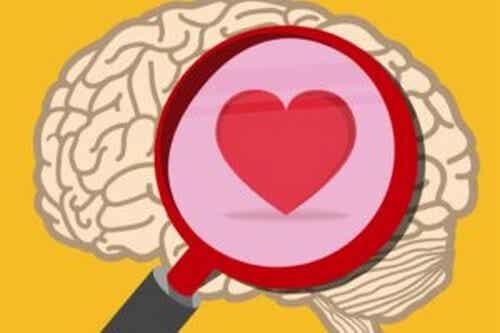COVID-19 is radically changing our lifestyle. In an uncertain scenario, feeling anxious is normal. However, it is necessary to know how to manage it to give the best of us and overcome this emergency situation that affects the entire population.

Written and verified by the psychologist GetPersonalGrowth.
Last update: 15 November 2021
Psychology is very familiar with a phenomenon called social contagion. These are situations in which emotions propagate to the point of creating strong stress, worries and even panic. Coronavirus anxiety is affecting everyone and it is necessary to contain its effects to properly manage the situation we are experiencing.
Experiencing strong feelings of panic changes our lifestyle. The Coronavirus pandemic will certainly have effects on the economy, but the worst part is that it makes us behave irrationally. For example, much of the population stormed supermarkets and stocked up with toilet paper for months. Does this behavior make sense? Apparently not.
We must be clear. Anxiety is part of us and as such it has a purpose and its importance. Thanks to it, in fact, we warn and react to dangers, safeguarding our survival.
In contexts of uncertainty and worry, such as the present moment we are facing, it is very important to keep anxiety under control. This emotion must be our ally and not the cause of further worries that make us adopt illogical and irrational behaviors.
In the current scenario, fear can be a second virus as dangerous as COVID-19. The reason? If we get scared, our psychological distress will increase and we will show the worst in us. This is definitely not the time to be afraid. These days we have to bring out the best in ourselves and use our mental strength.
Coronavirus Anxiety: What Can We Do?
The classic English message Keep calm and carry on should apply to everyone. This phrase first appeared in the UK in 1939 in a pamphlet to raise the morale of the population. Later, as we all know, it became an iconic phrase. Was it any good?
People certainly appreciated the will of the British government. In reality, however, it is not very helpful to tell someone to stay calm. Today, to calm Coronavirus anxiety, something else is needed: we have to train our mental focus.
It is about reducing the hyperactivity of the amygdala and of our emotions to activate the prefrontal cortex, which is the area of the brain that allows us to act and think in a more focused and reflexive way.
1. Avoid information intoxication
Information overload must be avoided. The World Health Organization (WHO) has recognized that the current crisis is causing enormous stress to the population. In order to reduce the negative impact of stress, we must avoid exposing ourselves 24 hours a day to the news and data that are continuously provided to us.
You need to be informed, but not be obsessed with the news. Checking the numbers, the contagion rate, the new cases, the new deaths relentlessly does nothing but increase the anxiety from Coronavirus.
2. To deal with negative thoughts, one must be rational
Being afraid is logical. However, this fear must be rational. For example: “I'm afraid I'm infected. What should I do?". Inform the health professionals and take all necessary precautions. "I am afraid that my father or my grandfather will get sick, what can I do?". Protect them by following all necessary protocols.
Fear must be a mechanism that stimulates us to take useful measures to act. We must therefore keep under control especially the negative thoughts that increase panic.
If we are assailed by ideas like "we will all die" or "there is no solution", we must try to be rational. How? Looking for information from reliable sources. For example, looking at the statistics that come from China: the death rate is 2,3%.
3. In the face of uncertainty, we try to maintain our daily routines as much as possible
Coronavirus anxiety is fueled by uncertainty. The truth is that we are facing a new situation that we have never experienced before. It is a new virus and there is no vaccine yet.
Beyond that, we don't know how long the restrictive measures and quarantine period will last. All this leads us to experience a state of uncertainty that not everyone knows how to manage.
Cosa possiamo fare? It is best to focus on the present, on the "here and now". In these cases, the ideal is to establish a routine to follow that forces us to focus on the present moment.
4. Coronavirus anxiety: sharing emotions to live better
Anguish is a very common feeling that makes those who feel it weak. This is the time to accept all our emotions and share them with others to find a balance.
It is not necessary to feed the feelings of fear, but to learn to manage them and create spaces that offer us hope, energy and emotional comfort.
5. Be realistic: the risk should not be minimized or maximized
One way to manage coronavirus anxiety is to be realistic at all times. We must not fall into the psychological defense mechanisms that lead us to minimize the risk because we are young or because in our area the rate of the infected is very low and therefore the danger is less.
But we also don't have to maximize the danger to the point that we suffer from insomnia and allow COVID-19 to be our only thought. There is a real risk and it must be accepted.
In essence, it is about adapting to this new reality aware of being responsible to ourselves and others. If we panic about Coronavirus, we are not helping anyone. If we underestimate the situation, we put ourselves and others at risk. We must act with balance and common sense.
6. Coronavirus Anxiety: We are not in control of what happens, but we can control our reactions and actions
To manage Coronavirus anxiety, we need to take note of a reality: we have no control over COVID-19. However, we can control our reactions and behaviors. We must ask ourselves how we want to remember this period when it has passed.
It would be nice to remember us as people who have kept calm, who have been responsible and who have taken care of themselves and others.
7. Daily goals
Nobody could have foreseen the current situation, but we have to live it and face it. However, it could take several weeks to flatten the contagion curve as China has done.
Until that day, two elements that will help us reduce the burden of Coronavirus anxiety. The first is to set daily goals. The second is to stay in touch with the people we love.
Goals must be both short-term and long-term. Every day, when we get up, it is advisable to set a short-term goal: to read a book, do something new with your partner or children, clean the house, write, paint, etc. Long-term goals, on the other hand, give us hope and remind us that there is a future ahead of us.
It is equally essential to maintain contact with the people we care about. Now more than ever WhatsApp and video calling allow us to keep in touch with family and friends. We use technologies and do not give up hope. Our attitude can help us get through this difficult time better.


























